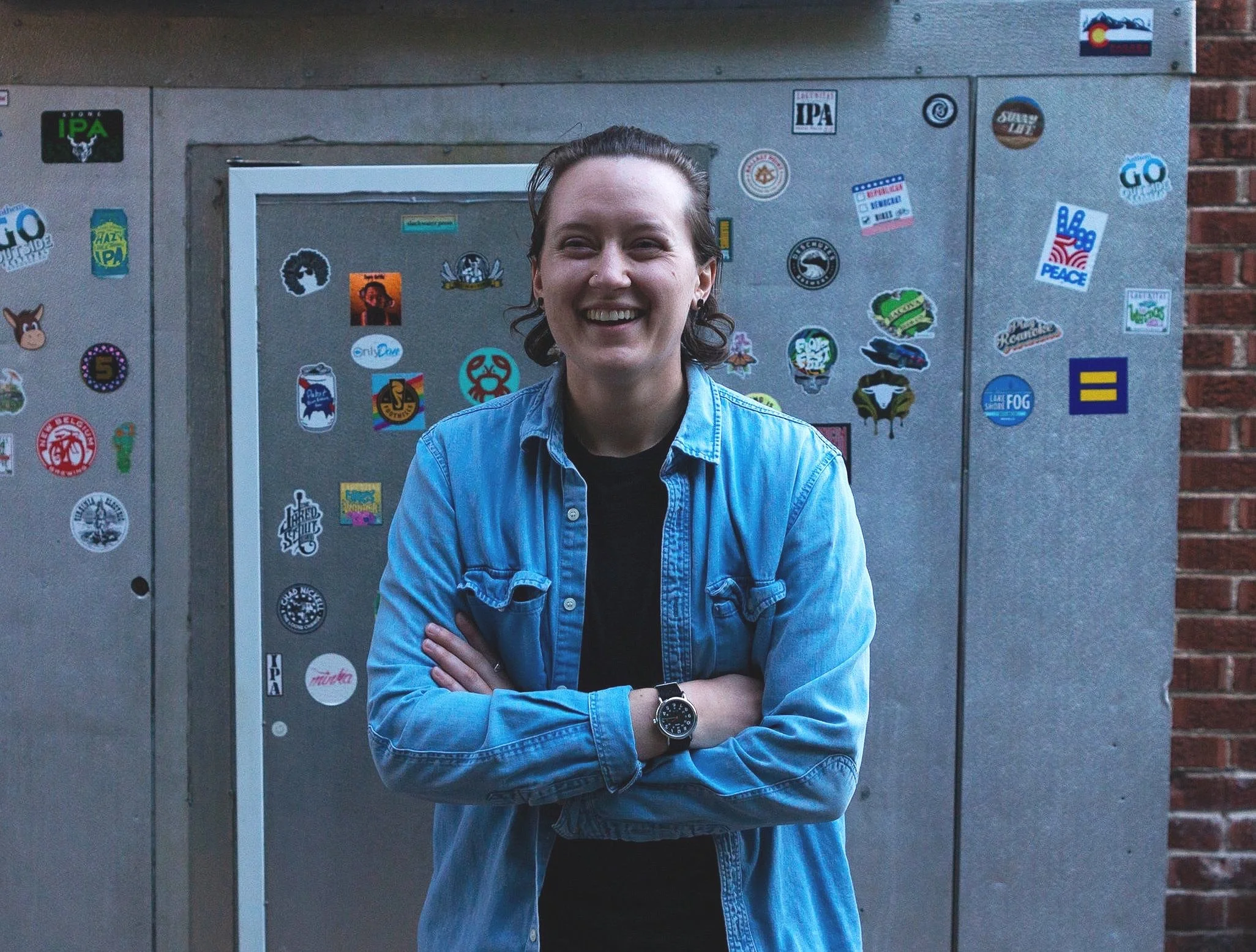People rally outside a courthouse in support of Serikzahn Bilash, who fought for victims of China’s internment camps.
Photo by Antia Bonnarens
In November 2019, a Kazakh activist was sentenced to 15 days in jail for staging what he called a protest “against Chinese expansion.” Over the last few months, the Republic of Kazakhstan has seen a significant spike in protests held by civic activists both to critique the country’s relationship with China, and to support political prisoners. In mid-September, dozens were witnessed being detained at anti-China protests taking place in Kazakhstan’s two largest cities. People chanted “freedom to political prisoners,” as reported by Reuters, in support of Mukhtar Ablyazov, a fugitive currently living in France. Ablyazov is a long-standing critic of Kazakhstan's former president Nursultan Nazarbayev, as well as the country’s growing economic relationship with China.
Photo by Anita Bonnarens
In addition to public opposition of plans to relocate Chinese oil plants and factories to the former Soviet Republic, Kazakh activists have been increasingly vocal over what is being called China’s controversial "counter-extremism centers" in Xinjiang Province. Last year, the United Nations reported several million ethnic Uyghurs and other Muslim Turkic-speaking Indigenous people being sent to these centers and other types of internment camps.
Photos by Anita Bonnarens
During times of such political unrest, there is even more pressure on Kazakhstan's local press. Kazakhstan is ranked 158th out of 180 countries in Reporters Without Borders 2018 World Press Freedom Index. Journalists and activists face constant fear of detention and unjust treatment. Public Association “Қадір-қасиет” (PAD), directly translated from the Kazakh language to “Dignity,” is one local organization that has been working for nearly a decade to address issues surrounding the security and protection of human rights’ defenders, freedom of assembly, freedom of expression, freedom of associations, prevention of torture, fair trial, and the rights of migrants.
Kazakhstan's national Charter of Dignity outlines the general objectives for the advancement of human rights and freedoms. But as Anara Ibrayeva, one of the organization’s ten co-founders, explained, PAD began to provide further advice and assess the existing legislation of the Republic of Kazakhstan, ensuring its compliance with international legal documentation in the field of human rights.
Photos by Anita Bonnarens
PAD is also a member of the Civic Solidarity Platform, a network of non-governmental organizations committed to improving issues around human rights within Europe, Eurasia and North America. The organization is currently working on five projects which include training, psychological support and legal support for civic activists and human rights defenders, as well as a project in collaboration with the Office of the United Nations High Commissioner for Human Rights, in support of freedom of expression and peaceful assembly.
In September 2019, PAD, throughout their routine media screenings, reported a total of 154 Kazakh activists being detained during anti-China protests. This number largely included largely civil activists, journalists, human rights activists and “about three dozen mothers of large families.” By monitoring and reporting on arrests of civil rights defenders, the organization is hopeful they can raise public awareness while also holding larger institutions accountable in cases of injustice.
Photo by Anita Bonnarens
To learn more about Public Association Dignity and to support their work, visit https://kkassiyet.wordpress.com/


















